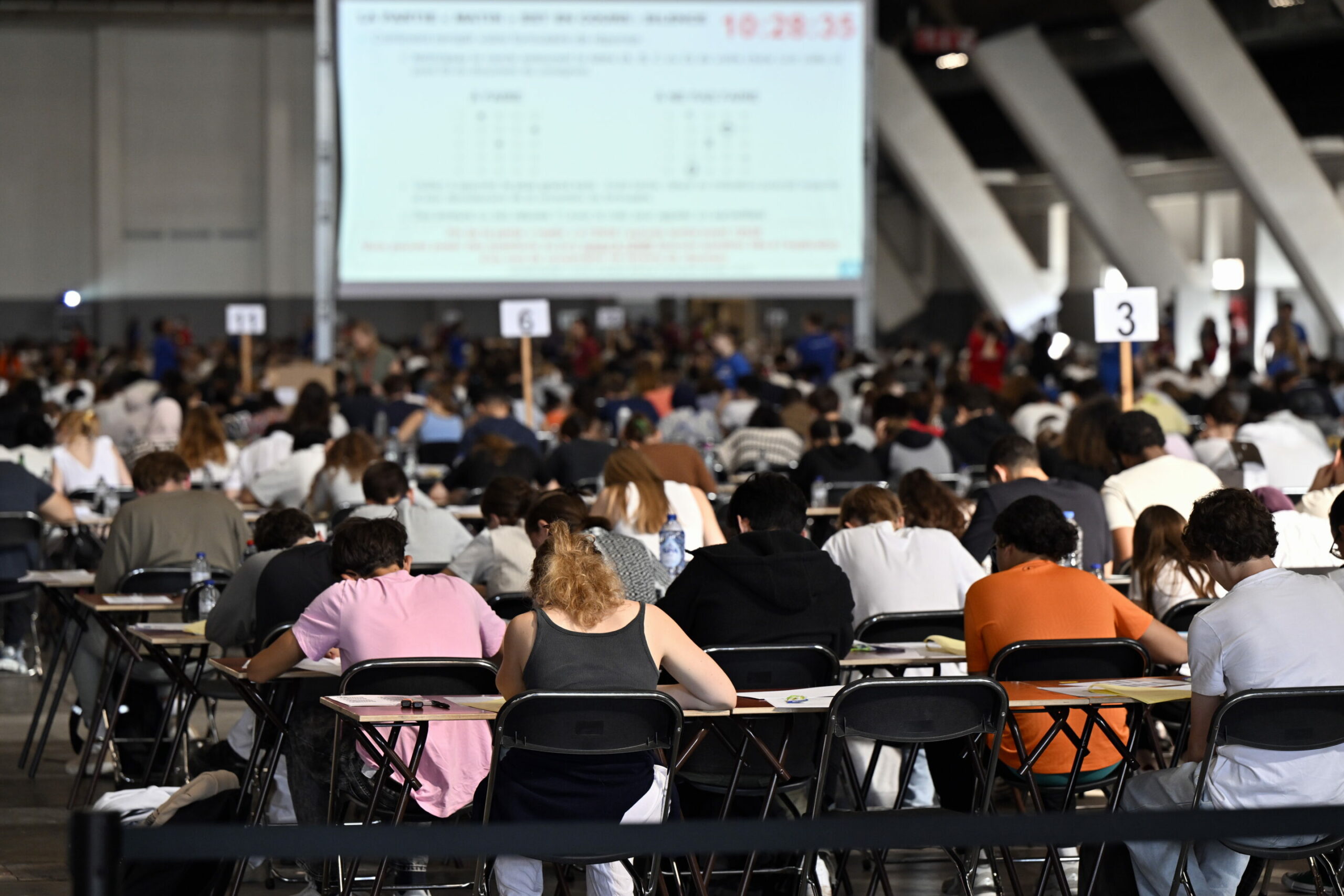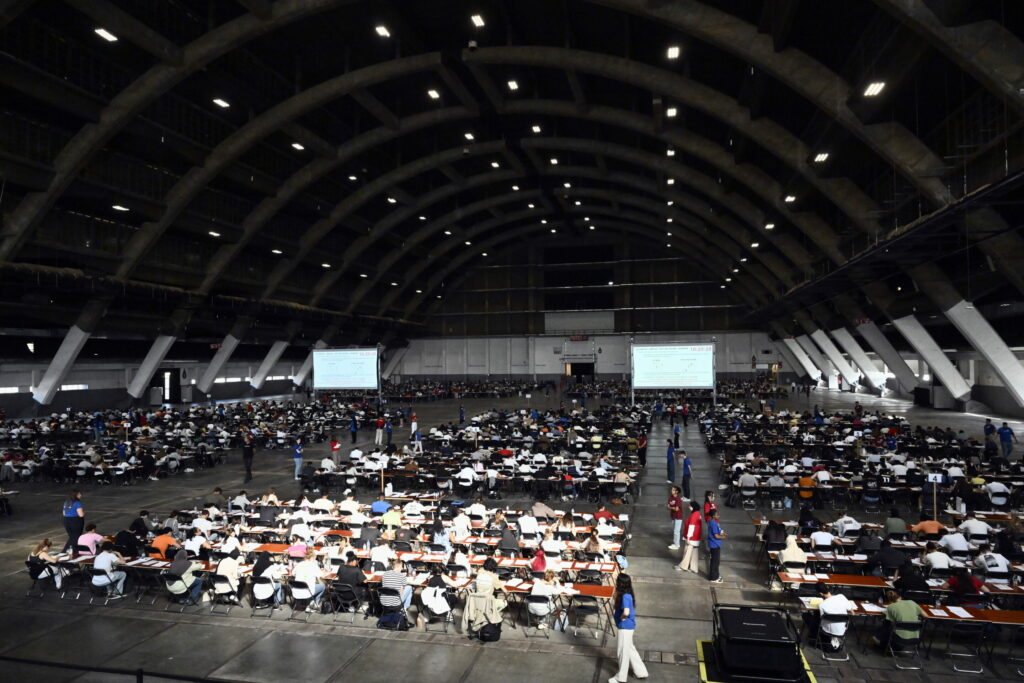Over 5,200 candidates crowded into three Brussels Expo halls from 07:30 on Wednesday to participate in the second annual university entrance contest for medicine and dentistry.
The contest's organisers Academy of Research and Higher Education (ARES) reported a total of 5,205 valid registrations, 4,150 for medicine and 1,055 for dentistry. This marks an increase since last year when 3,164 students registered for medicine and 686 dentistry.
The entrance contest which was first held in 2023, replaced the entrance exam that had been organised since 2017. The new format allows for only a predetermined quota of successful candidates (determined every year by the Wallonia-Brussels Federation government (FWB) and does not have a pass or fail system.
This year's candidates must rank among the top 1,520 to be admitted, with 1,346 spots in medicine and 174 in dentistry up for grabs. Results will be ranked in descending order based on the average test score. Successful candidates are selected until the number of eligible students— the quota— is reached.
All-day exam
A cap is set to limit non-residents to 15% of the student body to prevent excessive numbers being trained in Belgium but practicing elsewhere. This year, 1,916 non-residents registered, making up 37% of all candidates.
The exam lasts the whole day, starting at 9:30 and ending at 17:00. Prospective students have to answer 80 multiple-choice questions subject to negative marking, covering six subjects (including biology, chemistry, physics and maths), and divided into the two categories "knowledge and understanding of scientific subjects" and "communication and critical analysis of information".

Students pictured at a medical and dental entrance examination for french speaking students, in Brussels, Wednesday 28 August 2024. Credit: Belga / Eric Lalmand
Candidates often dread the physics test the most, and with good reason. Data supplied by ARES shows that the physics test records the highest number of failures, even among the highest-ranked candidates.
It was introduced following an agreement reached between the FWB and the federal government in 2022 after years of political wrangling.
At the time, when discussing whether or not to implement the new system, now Education Minister Valérie Glatigny told La Libre,"Nobody likes filters at the entrance to studies, but we must remember that last year we had 6,000 enrolments for medicine and dentistry, which is a very large number. This creates problems in terms of the quality of training. That's why the introduction of a competitive examination gives us greater predictability."
'Crossing our fingers'
Despite initial fears that this competitive ‘contest’ model might deter some, students appear to have regained confidence in their chances of success. Among those registered, 4,475 are new applicants, alongside 730 who are trying again.
Students often take a whole year to prepare for the big day. "I worked all through August and also took the preparatory classes from January to June," Romane, one of the candidates taking the test today told RTL. "I redid a lot of tests, the exams from previous years, studied all my bio, physics and chemistry lessons, redid the tests for the second part and now we're crossing our fingers."
When asked if he was stressed, another student named Ihad said, "Yes, a little bit, because I've been preparing for this for a year so if I show up and can’t do anything, it’s quite disheartening."

